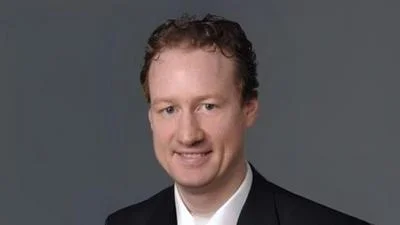Austin Chamber of Commerce issued the following announcement on Dec. 23.
A pair of researchers are suggesting the best way to reduce property taxes in Illinois is for the state to take over a greater share of funding for public schools and consolidate some units of local government.
Frank Manzo, policy director at the Illinois Economic Policy Institute, and Robert Bruno, director of the Project for Middle Class Renewal at the University of Illinois at Urbana-Champaign, argue in a new report that such a plan would not only hold down future property tax hikes, but it would actually help create jobs and stimulate the state's economy.
"There have been previous commissions on this issue since the 1980s," Manzo said in an interview. "Four of them, in fact, and all four unanimously found that really meaningful property tax relief for homeowners would require more state funding for public education. And in three of the four task forces, local government consolidation was also directly or indirectly called for. But these are structural problems that have frankly only deepened since those reports."
Illinois lawmakers passed Senate Bill 1932 earlier this year establishing a bipartisan Property Tax Relief Task Force. It was part of Democratic Gov. J.B. Pritzker's so-called "fair tax" package that also included a proposed constitutional amendment allowing the state to levy a multi-tiered "graduated" income tax in which people would pay higher rates on higher levels of income. Voters will decide on that amendment in the November 2020 elections.
Pritzker has said he wants part of the new revenue from a graduated tax — estimated at about $3 billion a year — to go toward local property tax relief by raising the current property tax credit that property owners can take on their income taxes.
But in their report, which they shared with Capitol News Illinois ahead of its public release, Manzo and Bruno argue that the state's current property tax system and its school funding system are structurally flawed.
Specifically, they point to the fact that property taxes account for two-thirds of school funding in Illinois while the state pays only about 27 percent, or about half the national average.
They also point to the state's Property Tax Extension Limitation Law, or PTELL, which allows automatic property tax increases each year, but also caps those increases at the rate of inflation or 5 percent, whichever is less, thus preventing many local governments, and especially school districts, from raising the revenue they need.
Their proposal is to raise the state's contribution to public education by $5 billion over four years. That would be in addition to the increased funding that comes through the state's new Evidence Based Funding formula, which calls for an added $350 million for education funding each year.
The new money would be distributed proportionately to all 852 school districts, effectively covering their future increases under the PTELL law and enabling them to hold their property taxes flat for four years.
That plan could be paid for, they argue, through the proposed graduated income tax, a new tax on retirement income over $100,000 and savings that could be achieved by consolidating township governments.
"It is not only good for education, for children growing up and going to school in this state," Bruno said. "But it also happens to have the added benefit of taking the burden properly off of local property owners, and shifting, modestly, some of that additional responsibility to the state, where it actually exists everywhere else in the country but in Illinois. So I think you can make an argument — and I think you can make a winning argument — that this is where the investment needs to be going."
In their report, Manzo and Bruno note that Illinoisans pay the seventh-highest property tax rates in the country and that roughly two-thirds of all property taxes go to school districts. Average Illinois homeowners pay 7.4 percent of their income on property taxes, compared to just 4.95 percent in income taxes.
They also argue that property taxes are regressive because lower-income homeowners have much more of their total personal wealth invested in their home than upper-income people. According to the report, a household earning $35,000 per year, for example, pays on average 10 percent of their taxable income in property taxes, compared to 7 percent for someone earning $75,000 a year, and just 1 percent for people with yearly incomes over $1 million.
Using economic modeling formulas, Manzo and Bruno estimate the net impact of increasing the state's investment in education and holding down school district property taxes would be to grow the Illinois economy by about $1.2 billion and adding up to 14,000 new jobs.
Consolidating townships, they suggest, would have a smaller impact, lowering property tax bills by 0.4 percent, adding $11 million to the economy and producing about 100 new jobs.
An alternative, they argue, was reflected this year in House Bill 320, which would have extended PTELL to all local governments, including home rule jurisdictions. It also would have unilaterally cut property tax levies by 10 percent below their 2018 level and then would have frozen property tax levies after that.
"Local governments would have been forced to slash spending on essential services by $3 billion annually," Manzo and Bruno wrote in their report. "Although property tax relief would produce an economic stimulus, it would be completely offset by the cuts to long-term public investments – shrinking Illinois' economy by $2 billion and 27,000 jobs."
Manzo and Bruno said they do not yet know what will be in the task force's final report, which is due to be released by Dec. 31.
Original source can be found here.






 Alerts Sign-up
Alerts Sign-up